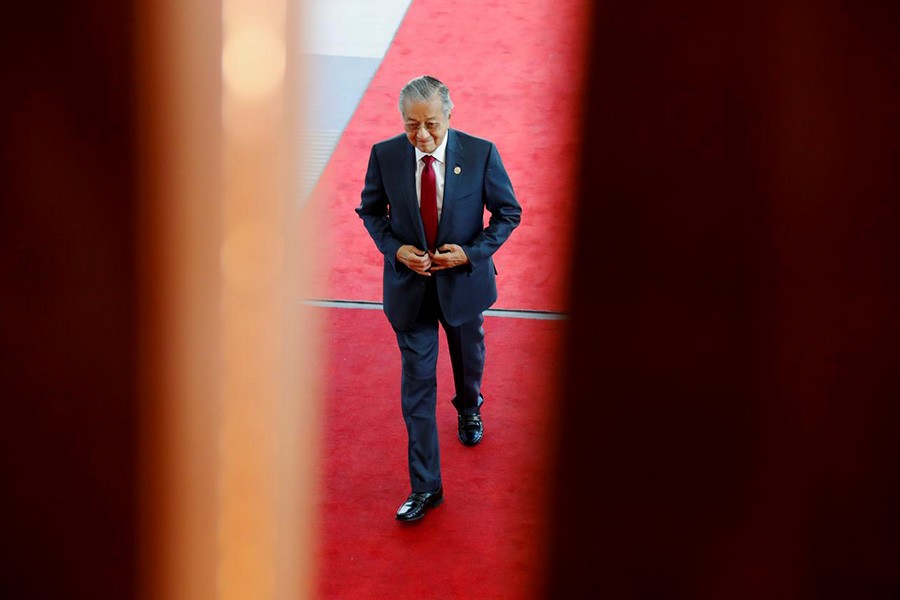Prime Minister Mahathir Mohamad on Tuesday asked for China’s understanding over Malaysia’s plan to cancel a $20-billion rail project that spearheads China’s infrastructure push in the Southeast Asian nation, saying Kuala Lumpur could not afford it.
Since winning power last May, Mahathir has repeatedly vowed to renegotiate or cancel what he calls “unfair” Chinese projects authorized by predecessor Najib Razak, whose near-decade long rule ended in electoral defeat amid a massive financial scandal, reports Reuters.
The cabinet has decided to cancel the contract with China Communications Construction Co Ltd (CCCC) for the East Coast Rail Link project, economic affairs minister Mohamed Azmin Ali said last week.
“We seek understanding from the parties concerned,” Mahathir told reporters on Tuesday, adding that Malaysia was burdened with “heavy debt” and could not afford the project, one of the biggest signed in China’s signature Belt and Road initiative.
“It is not because we want to frustrate or throw out the contract, it is because we are really tight in terms of finance.”
The contract may cost the country more than 100 billion ringgit ($24.33 billion) in total, Mahathir said, adding that Malaysia would still have to pay a cancellation fee.
“The huge compensation is not as huge as the amount of debt we will carry for the next 30 years.”
The government was still determining how much to pay CCCC as cancellation fee, Azmin said last week. Government officials have previously said the project cost had been inflated.
In Beijing this week, Chinese foreign ministry spokesman Geng Shuang said he was unaware of the project cancellation.
On Tuesday, Mahathir said an official statement is to be issued in the next few days, with the finance ministry to provide a detailed explanation soon.
In August Mahathir had said the project would be canceled “for now”, but the government later said it was in talks with CCCC on the future of the rail line.
Mahathir has blamed Najib’s administration for taking total government debt and liabilities to more than 1 trillion ringgit, including that of scandal-plagued state fund 1MDB, which is being investigated for corruption in at least six countries.


